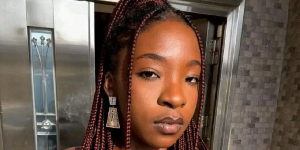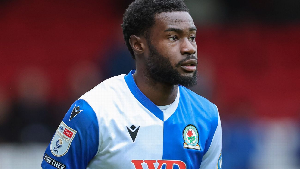Nigeria is a secular state and it shouldn’t be difficult to leave the administration of public schools for professionals not clerics.
In the last few years, there have been more arguments about whether it is appropriate for Muslim students in public schools to wear hijab to school than arguments on the need to provide better and quality education for students.
The endless controversy about hijab?—?a veil or covering for Muslim women?—?has successfully made the pursuit of education and the practice of one’s faith mutually exclusive in Nigerian public schools.
While Muslims see no reason why their children shouldn’t be allowed to wear hijab as part of their religious practices, many non-muslims believe allowing hijab in public schools will encourage students of other faiths to attend classes in their religious garments and paraphernalia.
Of course, a situation like this will not only breed chaos, it will also internalise the religious intolerance we pretentiously preach against in the minds of our innocent pupils.
Hijab controversy is a vicious circle that is consistently experienced in the south-western part of the country, where the Muslim and Christian population seems to be at par.
Public schools in other regions of the country are adjudged to be largely Christian or Muslim and as such, there has never been an issue about religious paraphernalia and school uniforms.
It is worthy to note that, in recent times, the hijab controversy trend started in Lagos during the Babatunde Fashola-led administration, when Muslim students were barred from coming to public schools with their hijab on.
The position of the Lagos State Government at the time was that the hijab violates the idea behind school uniforms.
The Muslim community in Lagos took legal steps on the case, and in the end, the Supreme Court ruled that hijab be allowed in Lagos public schools, as a school or state government policy does not supersede the constitution of the country, which gives room for freedom of religion.
With the apex court’s verdict, Muslim students in Lagos public schools are now allowed to wear shoulder-length hijab that matches their school uniforms.
This same issue raised its ugly head in government-controlled schools in Oyo and Osun states.
As usual, the Muslims in both states challenged the authorities of the affected schools and the state governments. But while the management of the University of Ibadan International School stood their ground and won the case, hijab advocates had their way in Osun public schools.
However, in Kwara state, the hijab controversy that recently led to violence tends to have a different dimension as the ‘public schools’ involved in the crisis are deemed to be missionary schools.
These schools which originally were established by Christian missionaries decades ago, were ceded to the Kwara state government in 1974.
After taking over the management, control and funding of the schools, the state government decided to honour the Christian founders by retaining the names of the schools named after them.
The takeover tends to transform the missionary schools into public schools that admit both Muslim and Christian pupils.
But decades later, the missionaries decided to take their schools back from the Kwara State Government to entrench and promote Christain teachings in the schools.
This move also prompted the school authorities to send hijab-wearing students back home to their Muslim parents, arguing that their hijabs are against the Christian heritage of the schools’ founding missionaries.
This worsened the matter and what was initially a legal tussle between the missionaries and the state government led to religious violence on the streets of Ilorin.
It was a messy sight as those not engaged in street fights thronged the streets with placards.
While Christians carried placards reading: “Give us back our schools”, “Enough of marginalisation”, protesting Muslims had Arabic inscriptions on their placards bearing “Lailaha Illa Allah Muhammadur Rasulullah” (There is no deity worthy of worship except Allah, Muhammad is Allah’s messenger).
Unfortunately, due to the crisis, the state government had to shutter the schools to forestall the breakdown of law and order, but in all of this, the pupils are the real victims of this religious shenanigans. Not the missionaries, not the Muslims, but the ‘leaders of tomorrow.’
Ideally, state-run institutions should be free from religious interventions, but in a country where religions are both faiths and political tools, you shouldn’t expect anything less.
Nigeria is a secular state and it shouldn’t be difficult to leave the administration of public schools for professionals not clerics, and free it from any forms of religious control.
The argument about hijab in Kwara is largely based on whether the schools in question are public or missionary-owned, but that’s the problem for the Supreme Court to resolve.
But in a secular country like ours, government-owned schools are expected to be open to everyone regardless of the faith one professes, while faith-based schools should be entirely run as private entities. There should be no middle ground.
Federal or State Governments have no business in running or funding missionary schools, and until we see public schools as institutions that belong to peoples of all faiths without being petty or mischievous about our views of each other’s faith, hijab will remain a controversial piece of cloth in public schools.
General News of Friday, 19 March 2021
Source: www.pulse.ng
Will the hijab controversy ever go away?
Entertainment












